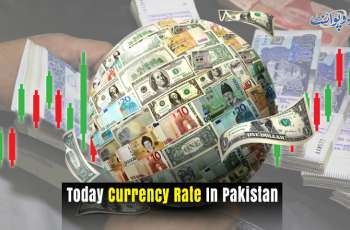NEW YORK (Pakistan Point News / Sputnik - 24th May, 2022) Wall Street fell for a seventh straight week, suffering its longest losing spell since the dotcom bust of the mid-1990s, as fears of an economic slowdown continued to hammer investor sentiment although the key S&P 500 index rebounded slightly after hitting bear-market territory on Friday.
The S&P 500, which tracks the top 500 US stocks, settled near flat on the day at 3,901. Earlier in the session, it fell to 3,810, marking a loss of 20% on the year. In general market terminology, any asset down 20% from its most recent high is defined as having entered a bear market.
While the S&P 500 rebounded from Friday's intraday low, it still finished the week down 3%, and registered a cumulative loss of 14% over the past seven weeks. Year-to-date, it is down over 18%.
Wall Street's selloff, which began right after the week ended March 25, has sent the S&P 500 deeper into a seventh weekly decline that would make it the longest losing streak since the dotcom bust of more than two decades ago, according to Bespoke Investment Group.
It also will be the fourth streak of seven or more weekly losses in the post-World War II period, the firm said.
"It's a small sample size, but these types of streaks haven't occurred during particularly positive periods for the equity market," Bespoke's strategists said in a note. "The root causes of the weakness have been the hawkish FOMC and increasing concerns over the potential for a recession."
The Federal Reserve has said it will raise interest rates non-stop and even slow the US economy if necessary to bring inflation down from 40-year highs.
After contracting 3.5% in 2020 from disruptions forced by the coronavirus pandemic, the US economy expanded by 5.7% in 2021, growing at its fastest pace since 1982. But inflation has grown just as fast as the economy, or maybe quicker, with some price gauges showing growth of as much as 8.5% on the year.
Since this year began, US growth has been on a weaker trajectory, coming in at a negative 1.4% in the first quarter as the Russia-Ukraine crisis led to runaway inflation in food and energy prices.
If the economy does not return to positive territory in the second quarter, the United States will technically be in recession going by the definition that it takes just two negative quarters in a row to make up a recession.
Aside from the S&P 500, two other major US equity indexes � the Nasdaq Composite and the Dow Jones Industrial Average � also finished with unbroken weekly losses since late March.
Nasdaq, which includes top technology stocks such as Amazon, Apple, Netflix and Google, finished down 0.3% on Friday at 11,355. It lost 3.8% on the week and was down 27% on the year.
The Dow, a broad-based blue-chip indicator, was flat at 31,261. For the week, it lost 2.9% while the year, it was down almost 14%.



